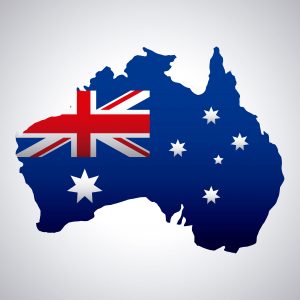INFORMATION
INTERNATIONAL STUDENTS
About Australia

Australia is a beautiful and diverse country, not only in its people from many cultures but also its spectacular scenery full of unspoiled beaches, rivers, regional parks and reserves. Australia is often viewed as a relatively young country yet it harbours a very rich history reflecting the legacy of Aboriginal settlement and European occupation. The sixth largest country in the world, Australia has a population of 24 million people, making it one of the world’s least crowded countries and a popular destination for those seeking rest and relaxation. Click here for more information
About Brisbane
Brisbane is one of Australia’s fastest growing cities with a population of more than 1.6 million. The area experiences over 300 days of sunshine per year, with an average temperatures of 28C (in summer) and 20C (in winter). Brisbane has plenty of shopping centres, restaurants, theatres, sports clubs and playing fields and nightlife. Click here for more information
Accomodation:
The Institute does not offer residential facilities on campus, though it can assist students in finding suitable accommodation. Below is a selection of accommodation options:
Rental
Rental accommodation can vary from between A$200 – $500.00 per week, depiong on the location. Click here for more information, using the Sunnybank postcode (4109) as a reference point.
Homestay
This accommodation is also available. A placement and administration fee of AUD$220 is charged with room and limited board (2 meals Mon – Fri, 3 Sat – Sun) costing AUD*$250 per week. Click here for more information.
Banking:
Major banks are Westpac, ANZ, NAB, the Commonwealth. Trading hours are 9.00am – 4.00 pm (Monday-Friday). Click here for more information
Currency:
Graduates can further their knowledge and skills through the Advanced Diploma in Ayurveda (HLT62615).All business transactions are in Australian dollars only (AUD). VISA Card, MasterCard, American Express and Diner’s Club are accepted in most restaurants, supermarkets and retail outlets. There may be some additional charges added on public holidays or when using some credit cards. Always check which credit cards are accepted before entering the business. To calculate current exchange rates click here.
Employment:
Student visa holders are permitted under Federal law to work up to a maximum of 20 hours per week with that amount increasing to 40 hours during term breaks in the academic calendar. Workplace training as part of a course is not counted in the allowed 20 hours. Students should refer to the Department of Immigration and Border Protection for advice on their allowable hours in which they can gain employment and work.
Living in Brisbane:
The following information provides an indication of what living expenses are associated with residing in Brisbane:
- Rental Accommodation (unit/villa):
- 1 Bedroom AUD$200-$300 pw
- 2 Bedroom AUD$250-$400 pw
- Electricity AUD$25 pw
- Telephone (Landline) AUD$10-$15 pw
- Public Transport AUD$30 pw
- Food AUD$90 pw
- Laundry AUD$12 pw
- Other AUD$50pw
– Family of 4 Costs of living:
- Rent AUD$300 – AUD$500
- Other Housing costs AUD$119
- Schooling AUD$108
- Cars AUD$125
- Food AUD$250
- Sport and Recreation AUD$40
An average international student in Australia can expect to pay approx. AUD$360 per week or AUD$18,720 per year. This is considering accommodation, food, clothing, entertainment, transport, international and domestic travel, telephone and incidental costs.
Medical Insurance:
As an international student, it is a requirement of your student visa that you have private health cover for the duration of your stay in Australia. You will need to buy OSHC before you come to Australia, to cover you from when you arrive. You will also need to maintain OSHC throughout your stay in Australia. If you purchase OSHC for 12 months and your studies exceed that length of time, you will need to renew your cover when the 12 months’ finish. For further information
Your OSHC will help you pay for any medical or hospital care you may need while studying in Australia, and it will contribute towards the cost of most prescription medicines and an ambulance in an emergency. It does not cover dental, optical or physiotherapy. If you want to be covered for these treatments, you will need to buy additional private health insurance
Public Transport:
Brisbane has an extensive public transport that consists of taxis, buses and trains. The Institute is in Sunnybank and as such is ideally situated for public transport access and use. Public buses run north, south and to the nearest rail station from within a block of the campus. For more information
External Support Services:
General Advice
Health
Counselling
Lifeline: Ph: : 13 11 14
Salvos Counselling Ph: 3349 5046
Discrimination and Violence
Anti-Discrimination Commission (Queensland) Ph: 1300 130 670
Legal Issues
Legal Aid (Queensland) Ph: 1300 65 11 88
